With increasing supply of properties due to more Hongkongers emigrating overseas, property prices plummet and are getting worse rapidly.
Bottomless Freefall of HK Property Prices from Increased Emigrants Selling Even at a Loss
The “Centa-City Leading Index,” which for a long time has reflected the price changes in the secondary real estate market in Hong Kong. was 162.31 At its latest release, it was sitting at 162.31, returning to the level in Nov. 2017, down 1.5 percent on a week-on-week basis. Within 2022, the overall property price decline to date is negative 12.05 percent, the largest decline recorded in 14 years since the 2008 financial tsunami. This is also down 15.17 percent from the index’s all-time high in Aug. 2021.Shih Wing-ching, the founder of Hong Kong Centaline Group (real estate), said in his newspaper column on Nov. 22 that the property market has fallen below its first critical red line of 10 percent and is heading fast towards the second critical line of 20 percent. And the chance of reaching such a dire scenario within 2022 is extremely high.
He wrote in his column: “The more the property prices fall, the more people become negative equity holders; the more people become negative equity holders, the more people want to cut their losses by getting rid of it even at a loss. The spiral continues and, in turn, causes property prices to fall further and further.”
Shih also pointed out that there was a sudden accelerated decline in property prices in October, and the drop in property prices in the fourth quarter may be equal to the sum of the declines in the previous three, resulting in an overall drop of more than 20 percent for the whole of 2022. “If such a decline happens, it will be shocking enough to wreak havoc in the market and cause financial risks,” said Shih.
With the accelerated decline in property prices, there have also been increased advertisements on the market citing emigrant sales in the past one or two months. Accompanying the frequent price updating, prices continued to drop further and further. There have also been more and more reports in the media on cases of loss-making transactions.
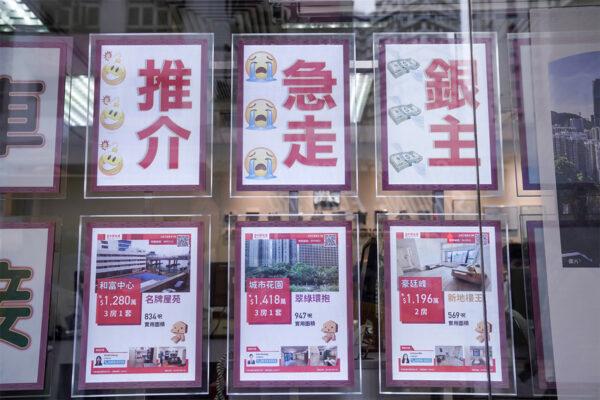
Loss Transaction Cases Spread from Low and Medium Priced Homes to Luxuries
A two-bedroom unit with a usable area of 389 square feet in Whampoa Garden was recently sold for HK$5.4 million (about US$690k). The original owner bought it for HK$6.768 million (about US$870k) in April 2019. This represents a book value loss of HK$1.368 million (about US$175k), and the unit depreciated by 20 percent during the period.Even the luxury properties sector, often seen as the more resilient, is not exempted from the current decline. One high-rise duplex 5-bedroom unit in “39 Conduit Road” at mid-levels, long regarded as the “most top-notched building in Asia,” was purchased for HK$400 million (about US$51.2M) five years ago, was recently sold with its price slashed to HK$378 million (about US$48.4 million), a book value loss of HK$22 million (about US$2.82 million).
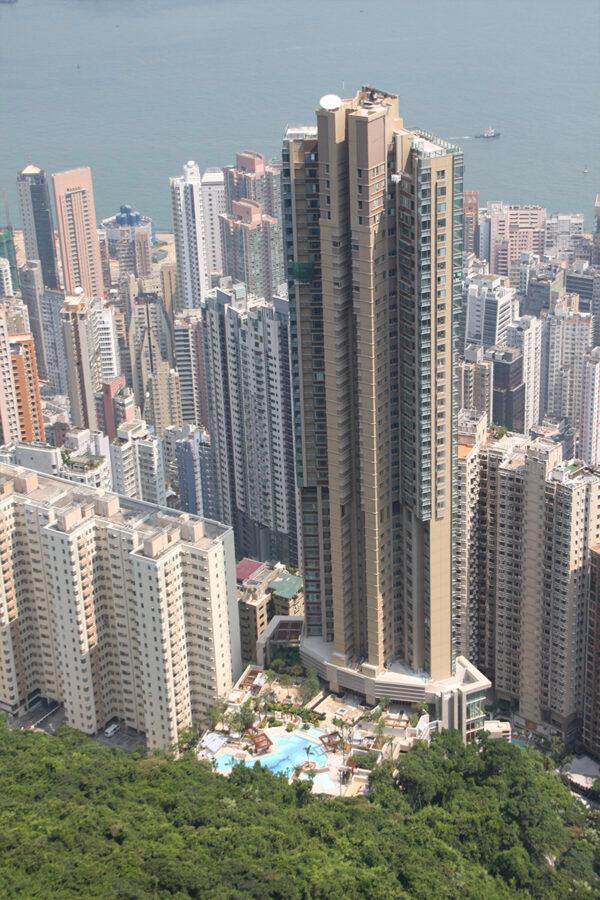
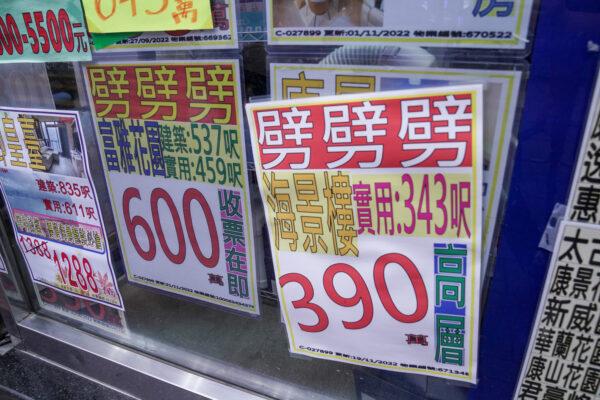
Analysis: Foreign Investment Still Around but not Willing to Enter the Market Now
Mike Sun, a senior investment consultant in the U.S., believes that the Hong Kong market does not lack “rigid demand” the only question is when the price will fall to an affordable range. On the other hand, the trend of Hong Kong’s property price decline has not yet shown any inflection point. The more rapidly it falls, the more reluctant the buyers are to enter the market.As for external demand, he believes that overseas funds will not come in, but the Hong Kong property market is still attractive to many mainlanders.
Mike continued to point out that the current pandemic prevention measures on the mainland are still fluctuating, and although the primary direction is likely to be “one city, one policy,” full opening is still “far away.” He revealed that although the clearance for travel between Hong Kong and China has not been easy for a prolonged period, many of his friends on the mainland are still pondering coming to purchase properties in Hong Kong once the travel restriction is lifted.
He further pointed out that in addition to the pandemic prevention and control measures in place, two other factors are restricting the southward movement of mainland funds. On the one hand, when the mainland economy is sluggish, the authorities are becoming reluctant to let the funds go south to support the Hong Kong market. On the other hand, the recent depreciation of the yuan and the weak exchange rate against the Hong Kong dollar will make mainland investors who hold renminbi assets much more cautious.
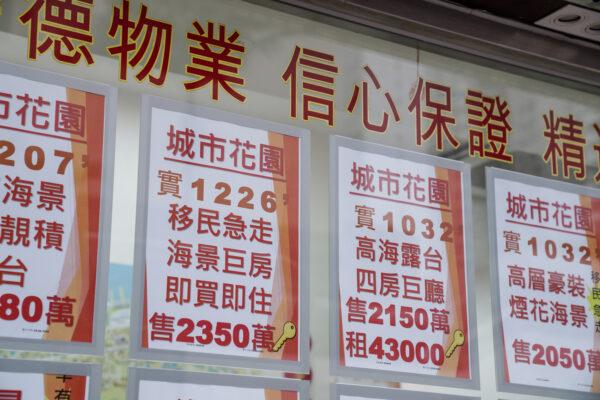
Citizens Under Pressure by Banks’ Repeated Rates Hikes and Resort to the Wait and See
In the second half of 2022, the Federal Reserve raised interest rates repeatedly by as much as 0.75 percent each time, and Hong Kong property prices began a downward trend as a result. Recently, a major bank in Hong Kong followed suit and raised the cap rate to ease its pressure on interest rate differentials. Industry insiders believe that rising interest rates are the biggest negative factor affecting the Hong Kong property market. Once the big banks raise their cap rate, potential home buyers will start to feel increased pressure.According to the data released by the Research Department of Centaline Group on Nov. 18, the overall property price has dropped by more than 10 percent in the past 18 weeks, reaching 10.35 percent. Compared with the overall decline of 12.05 percent this year, the property price drop has accelerated significantly.
On Nov. 21, Standard Chartered (HK) Ltd. announced that from Nov. 22, the upper limit of the H (Home) mortgage interest rate would be raised from P-2.5 to P-2.25 percent, with the actual interest rate rising to 3.375 percent, while the prime interest rate (P) will remain at 5.625 percent.
This is the first time a large Hong Kong bank announced an increase in the H (Home) mortgage lock-in rate since the Federal Reserve raised interest rates in November.
Ivy Wong Mei-fung, managing director of Centaline Mortgage Broker, pointed out that under the course of the interest rate hike cycle in the U.S. and the reducing bank balances, the one-month Hong Kong dollar interest rate related to real estate mortgages recently rose to 3.65 percent as of today, a 14-year high. This is significantly higher than that of the market, reflecting the pressure of banks on increased costs of capital and imminent interest rate increases. She cannot rule out more banks following the increase of new mortgage interest rates to ease the pressure on interest rate differentials.
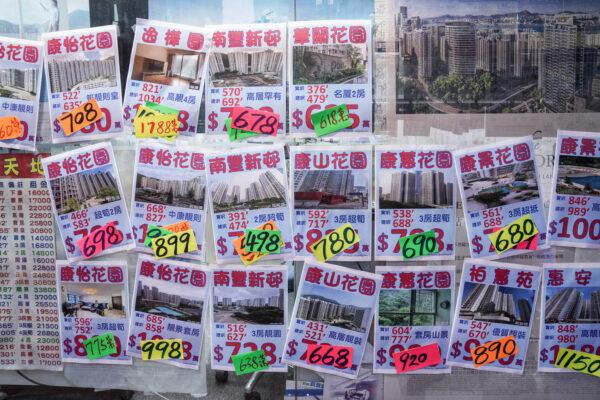
Increase in Cap Rate Seen as a Prelude to a Prime Rate (P) Increase
Josephine Lee Kwai-chong, head of Citibank’s retail banking business in HK, said at a press conference on Nov. 22 that rising interest rates are the biggest negative factor affecting the Hong Kong property market. The increase in the prime interest rate (P) in Hong Kong has increased the burden on the public to purchase properties; it will make them more difficult to pass the lenders’ stress test.Ivy Wong Mei-fung, managing director of Centaline Mortgage, pointed out that for new H (Home) mortgage customers, after the H mortgage cap rate is increased from 3.125 to 3.375 percent, the monthly repayment for a 30-year mortgage of HK$5 million (about US$640k) will go up by HK$686 (US$88), an increase of 3.2 percent.
It seems that rising interest rates, sluggish market conditions, and lack of foreign investment together all work against the desire of local residents to enter the property market right now.
Citibank released its “2022 Citi Residential Property Ownership Survey” result on Nov. 22. Only 12 percent of respondents were optimistic about property prices in the next 12 months, a sharp drop from 38 percent in the same period last year. 51 percent of the respondents believe property prices will inevitably fall over the next 12 months.
The survey also pointed out that even though a high proportion of respondents this year regard the present as a suitable time to enter the market, it has not been able to drive the respondents’ desire to buy a home now. Most are still sitting “on the fence,” and a strong wait-and-see attitude is still evident.
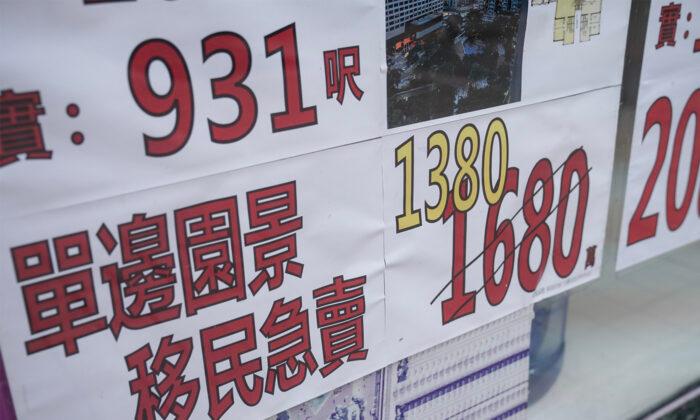
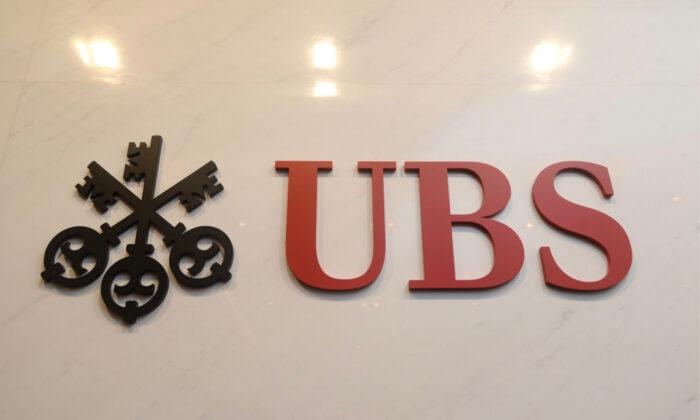
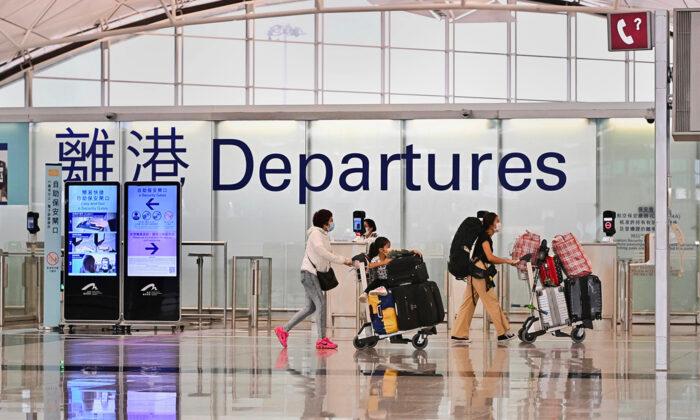
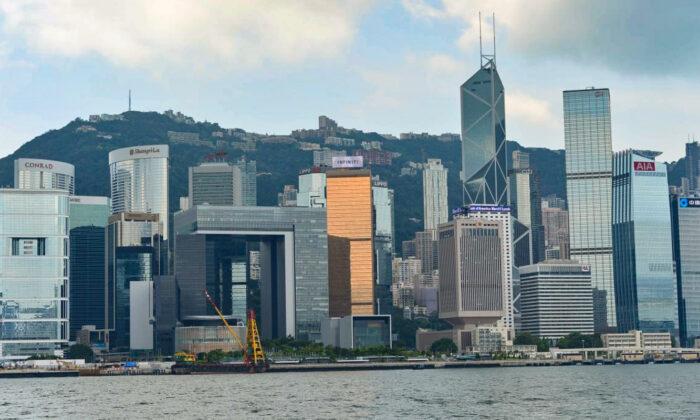
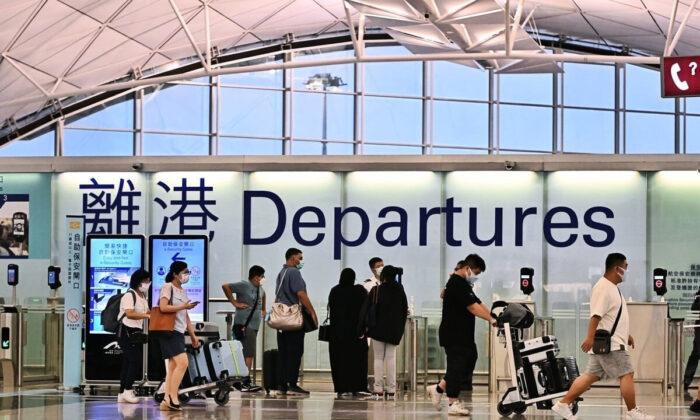
Friends Read Free